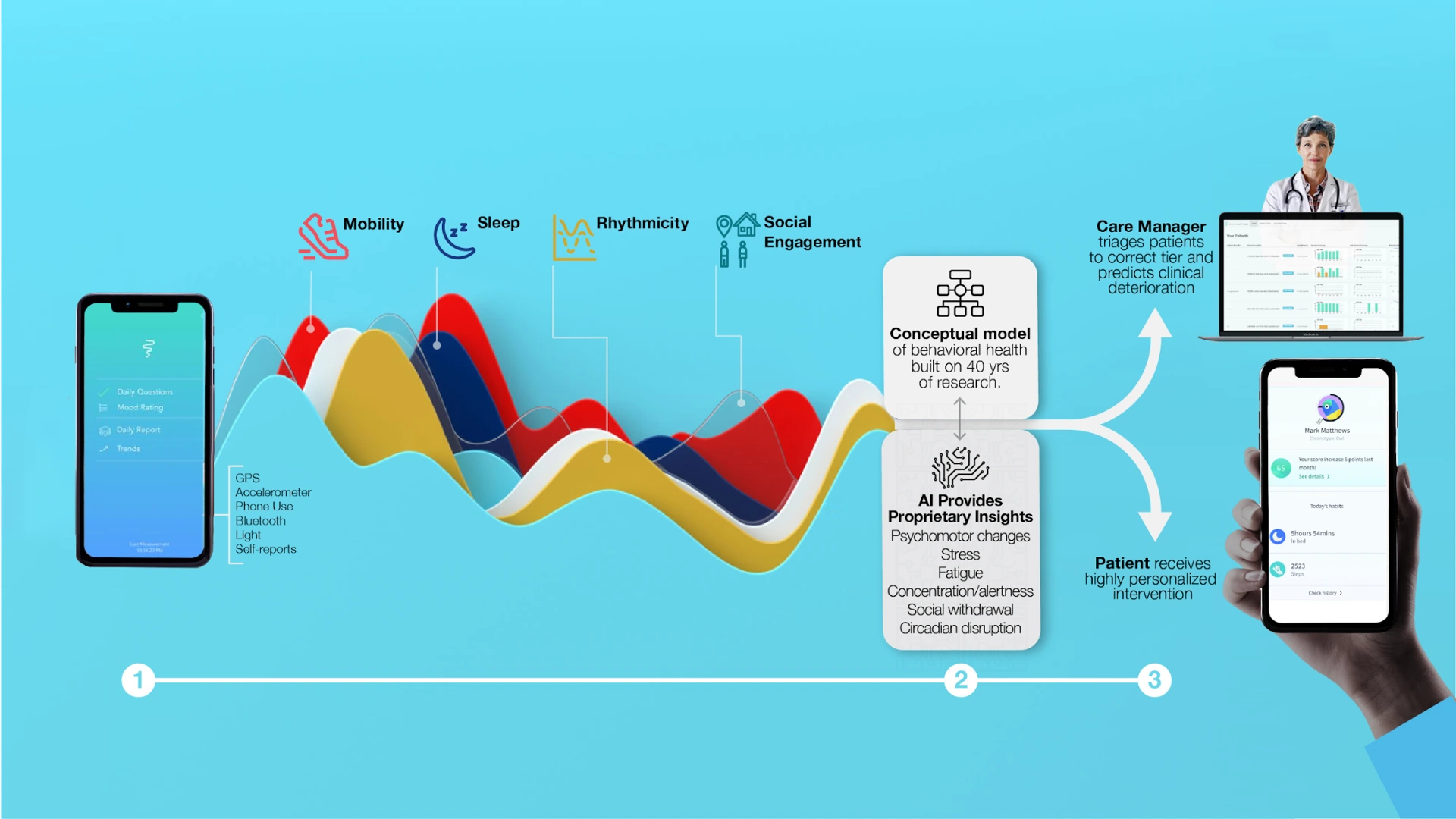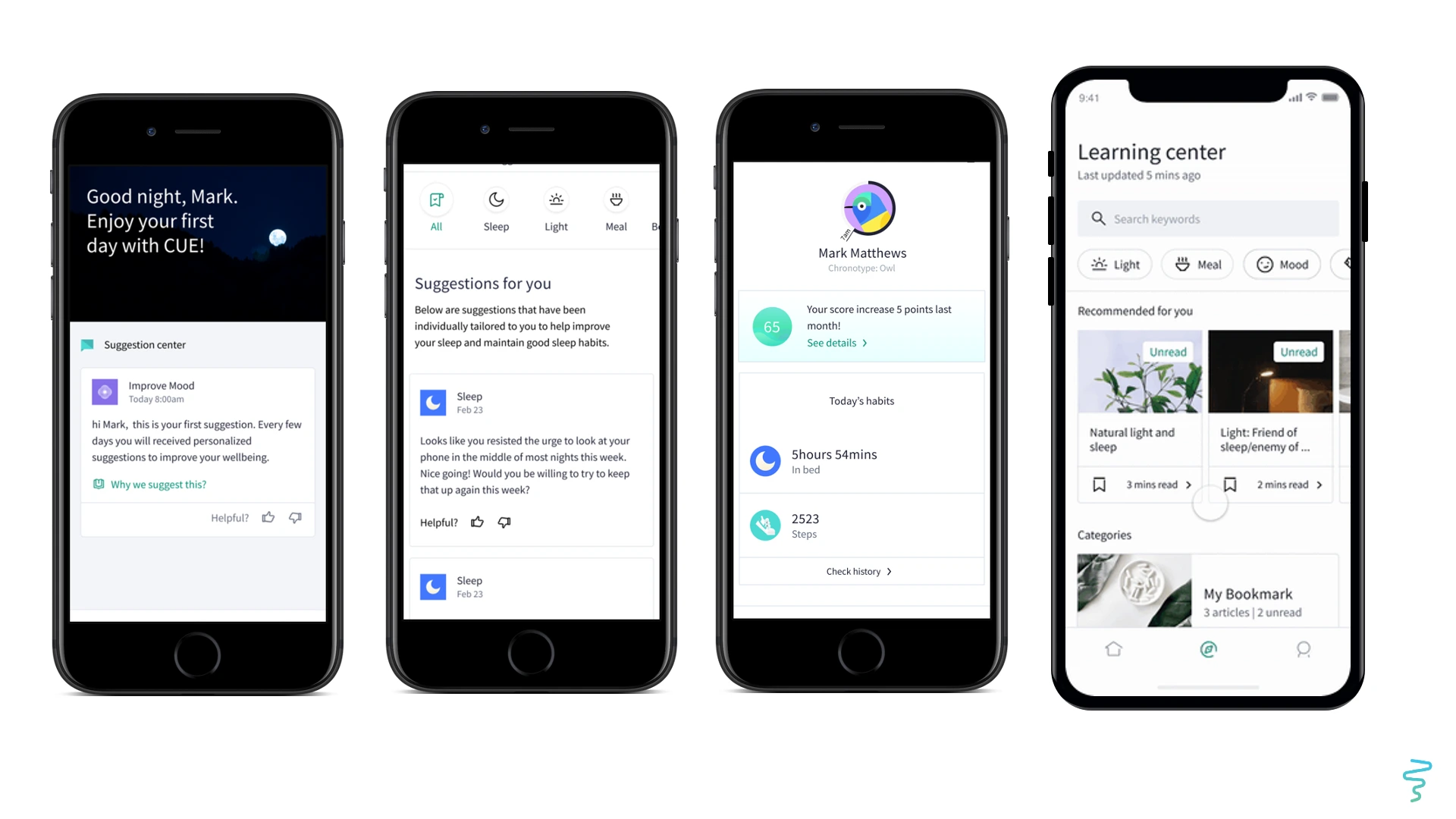Cue is a behavioural recommendation engine that uses sensor data from your smartphone to recommend clinically-validated behaviours within reach of your current routine that can help improve your behavioural and mental health.
Cue was inspired by prior work by Mashfiqui Rabbi and Tanzeem Choudhury at Cornell called MyBehavior. This project used sensor data to help improve people’s social and eating activities using a multi-armed bandit engine that would exploit recommendation strategies that had worked in the past, and explore new recommendations within reach of your current activities.
Cue was grounded in Ellen Frank’s Interpersonal and Social Rhythm Therapy and focused on identifying a person’s routine, sleep, social activity, physical activity and smartphone use, using Health Rhythms sensing library and then used this information to drive personalized recommendations. The elegance of this closed-loop approach, is that the engine can then see whether the recommendations had the desired effect: if Cue recommends that you try to get up consistently at 715am each day, it can also see if you were able to do that and then factor this information into the next recommendations.
Cue was generously funded through the Small Business Innovation Grants availble to US startups by both NIMH and NIAAA. The NIMH enabled us to create a version of Cue for people suffering with Depression. The NIAAA grant enabled us to do the same for people with Alcohol Use Disorder, targeting sleep.
Articles
Frank, E., Wallace, M. L., Matthews, M. J., Kendrick, J., Leach, J., Moore, T., … & Kupfer, D. J. (2022). Personalized digital intervention for depression based on social rhythm principles adds significantly to outpatient treatment. Frontiers in Digital Health, 4, 870522.






